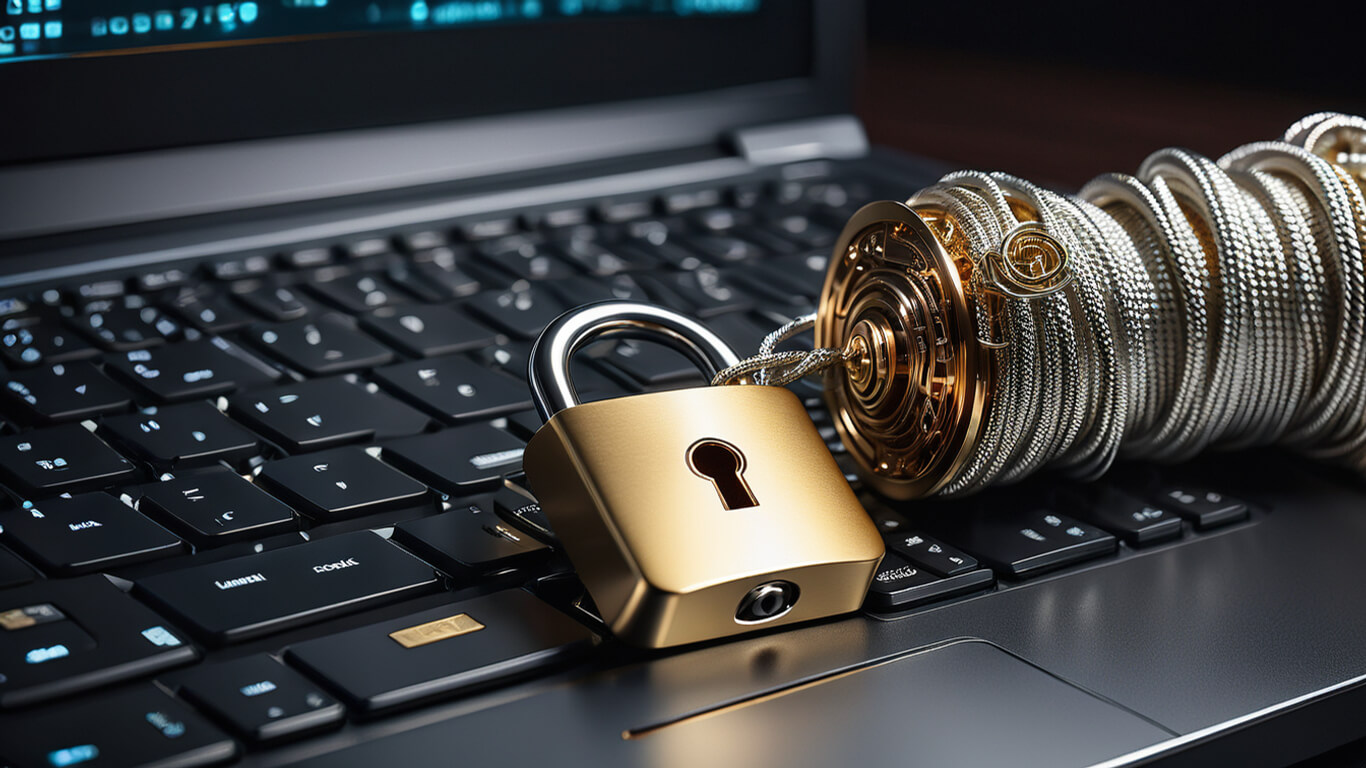Data Privacy Day is an important annual event that raises awareness about the significance of protecting your personal information online. In today’s digital age, where data breaches and cyber attacks are on the rise, safeguarding your data has never been more crucial.
This article will explore why data privacy is essential, the risks of not protecting your data, and practical tips on how to keep your information secure. We will discuss ways to participate in Data Privacy Day, including educating yourself and others, reviewing privacy settings, and supporting organizations that prioritize data privacy.
Let’s dive in and learn how to take control of your online privacy!
Table of Contents
Key Takeaways:
Data Privacy Day raises awareness about the importance of protecting personal data.Not protecting your data puts you at risk of identity theft, financial fraud, and more.Participate by educating yourself, reviewing privacy settings, supporting privacy-focused organizations, and attending virtual events.
What is Data Privacy Day?
Data Privacy Day, observed on January 28th each year, is an international effort to raise awareness about the importance of privacy and data protection for individuals, organizations, and society.
It serves as a crucial reminder of the evolving landscape of digital information sharing and the significance of safeguarding personal data. This day emphasizes the necessity of robust data protection measures and highlights how information security practices are essential components for maintaining trust in the digital age. By promoting global dialogue and education on data privacy best practices, Data Privacy Day plays a pivotal role in enableing individuals to take control of their online identities and guiding organizations in fulfilling their responsibilities towards respecting and protecting data privacy.
Why is Data Privacy Important?
Data privacy is crucial as it safeguards personal information, enhances security measures, and mitigates the risks of data breaches, underscoring its paramount importance in the digital age.
In today’s interconnected world, where personal data is increasingly shared and stored online, the protection of sensitive information has become a top priority. Data privacy not only helps individuals have control over how their data is collected and used but also plays a vital role in maintaining trust between consumers and companies. By adhering to proper privacy regulations and implementing robust cybersecurity measures, organizations can not only safeguard personal data but also cultivate a reputation for trust and transparency.
What are the Risks of Not Protecting Your Data?
Failing to protect your data can lead to severe risks, including data breaches, exposure of sensitive information, and potential security breaches that could compromise personal and organizational safety.
If adequate measures are not in place to safeguard valuable data, such as customer records, financial information, or proprietary business data, organizations can face severe repercussions. Data breaches not only harm the affected individuals but also tarnish a company’s reputation and erode customer trust. The exposure of sensitive information, like personal details or trade secrets, can lead to identity theft or corporate espionage, resulting in significant financial losses and legal consequences. Without stringent compliance protocols and regular data audits, the risk of data exposure increases, making companies vulnerable to penalties and sanctions, especially with the evolving privacy regulations worldwide.”
How to Protect Your Data?
Protecting your data involves implementing robust security measures such as encryption, ensuring GDPR compliance, and adhering to data protection best practices to safeguard sensitive information effectively.
Secure document handling is a fundamental aspect of data protection, preventing unauthorized access to critical information. Conducting regular data audits helps in identifying vulnerabilities and ensuring compliance with industry regulations like the GDPR.
- Employee training programs are essential to educate staff about data protection protocols and how to handle sensitive data securely.
- Establishing clear policies and procedures for data handling maintains consistency and enhances data security within the organization.
Use Strong and Unique Passwords
One crucial step to protect your data is to use strong and unique passwords that are regularly updated, enhancing security features and reducing the vulnerability to data breaches that could compromise personal data.
Strong and unique passwords act as the first line of defense against unauthorized access to sensitive information. By incorporating a combination of letters, numbers, and special characters, these passwords create a barrier that deters potential cyber threats. Pairing this practice with regular updates ensures that even if one password is compromised, the impact is minimized, and swift action can be taken.
Robust security features such as two-factor authentication further bolster data protection by adding an extra layer of verification. This additional step significantly reduces the risk of unauthorized access, even if a password is breached. While organizations implement these security measures, employees also play a vital role in maintaining data security. Education and training programs enable staff to recognize potential risks, adhere to security protocols, and promptly report any suspicious activities.
Enable Two-Factor Authentication
Another effective method to enhance data protection is by enabling two-factor authentication, bolstering security measures, and ensuring compliance with cybersecurity protocols and GDPR requirements.
Two-factor authentication adds an extra layer of security by requiring users to provide two different forms of identification before granting access to data or systems. This significantly reduces the risk of unauthorized access, as even if one factor is compromised, the data remains protected.
By combining something the user knows (like a password) with something the user has (like a unique code sent to their phone), two-factor authentication enhances cybersecurity measures and safeguards sensitive information. Implementing this method plays a crucial role in meeting the stringent data protection standards set by GDPR, providing organizations with a robust solution to safeguard critical data.
Keep Your Software and Devices Updated
Regularly updating software and devices is essential to maintain data security, protect privacy, and safeguard internet users from potential vulnerabilities and cyber threats.
By keeping software updated, users can ensure that any security loopholes or weaknesses are patched promptly, reducing the risk of unauthorized access to personal and sensitive information. Ensuring that devices are running on the latest software versions also enhances the overall performance and functionality, providing a smoother user experience.
In the rapidly evolving digital landscape, where cyber threats are becoming increasingly sophisticated, staying proactive in updating software is crucial for maintaining a robust data privacy framework and safeguarding personal information. Neglecting to update systems leaves them susceptible to exploits that can compromise data integrity and expose users to identity theft and fraud.
Be Cautious of Suspicious Emails and Messages
Remaining cautious of suspicious emails and messages is paramount to data protection, preventing potential data breaches, ensuring privacy settings are secure, and maintaining trust and transparency in online interactions.
Phishing attempts can appear deceptively genuine, tricking individuals into sharing sensitive information like bank details or login credentials. These breaches can lead to identity theft, financial loss, and reputational damage. Thus, regularly updating passwords, enabling two-factor authentication, and verifying the legitimacy of websites can significantly reduce the risk of falling prey to such scams.
Educating oneself and others on recognizing phishing red flags and reporting suspicious activities promptly can contribute to a safer online environment.
Use a Virtual Private Network (VPN)
Employing a Virtual Private Network (VPN) is a proactive approach to enhancing data security, safeguarding personal information, and mitigating risks associated with unauthorized data collection while browsing the internet.
Using a VPN ensures that your online activities remain private, shielded from prying eyes and potential cyber threats. By encrypting your data, VPNs create a secure tunnel for transmitting information, safeguarding it from hackers and snoopers. This not only protects your sensitive data such as passwords, financial details, and personal communications but also shields your browsing history from being tracked by advertisers and third parties.
How to Participate in Data Privacy Day?
Participating in Data Privacy Day involves raising awareness, educating others on data privacy guidelines, and taking practical actions to enhance data protection practices in daily life and organizational settings.
One of the key aspects of Data Privacy Day activities is to emphasize the significance of safeguarding personal information in today’s digital age. By understanding privacy regulations and their implications, individuals and organizations can better protect sensitive data from cyber threats and breaches.
Educational initiatives play a crucial role in equipping people with the necessary knowledge and skills to uphold data privacy standards. Practical steps such as using strong passwords, enabling two-factor authentication, and regularly updating security software can significantly improve data protection measures.
Educate Yourself and Others
An essential aspect of Data Privacy Day participation is educating yourself and others about data privacy, the risks of security breaches, and the importance of maintaining information security.
Understanding cybersecurity risks is crucial in the digital age, where personal data safety is constantly under threat. By raising awareness about privacy regulations and best practices, individuals can better protect themselves from potential data breaches and unauthorized access to sensitive information. Continuous education on data protection principles can enable individuals and organizations to adhere to strict security measures and mitigate security vulnerabilities.
Review Your Privacy Settings
A critical step in Data Privacy Day participation is reviewing and updating your privacy settings to ensure data protection, safeguard internet users’ privacy, and mitigate risks associated with unauthorized data access.
By taking the time to adjust your privacy settings on various devices and online platforms, you can actively manage who has access to your personal information. This simple yet crucial action can significantly enhance your online privacy and overall security measures by limiting potential vulnerabilities.
Understanding the latest data practices and staying informed about potential threats are essential for protecting your sensitive information from falling into the wrong hands. Customizing your privacy settings enables you to have more control over how your data is utilized and shared, creating a safer browsing experience for yourself and others.
Support Organizations and Companies that Prioritize Data Privacy
Show support for organizations and companies that prioritize data privacy, transparency in data practices, and protection of personal information to encourage a culture of trust and responsible data handling.
Entities that prioritize data privacy not only comply with regulations but also go beyond by implementing stringent security features. By fostering transparency in their data practices, they build credibility with their users. Businesses that establish a strong foundation based on compliance and prioritize data protection not only safeguard sensitive information but also contribute to a more secure digital ecosystem.
Spread Awareness on Social Media
Utilize social media platforms to raise awareness about Data Privacy Day, promote digital safety measures, and encourage active participation in data privacy discussions to foster a culture of data protection.
To effectively engage a wider audience in internet safety and digital security, individuals can share valuable data protection tips on platforms like Twitter, Facebook, and LinkedIn. These discussions can cover topics such as safeguarding personal information, using secure passwords, and being cautious of phishing scams. By facilitating dialogues on privacy practices, we can collectively work towards creating a safer online environment for all users.
Attend Virtual Events or Workshops
Participating in virtual events and workshops organized for Data Privacy Day offers opportunities to deepen understanding, build trust through education, and engage with data privacy experts to enhance knowledge and best practices.
Attending these online events allows individuals to stay informed about the latest cybersecurity trends, regulations, and technologies, enableing them to take proactive measures in safeguarding their personal and professional data. By connecting with industry leaders and practitioners in the field of information security, attendees can gain valuable insights and practical tips to bolster their defenses against potential threats. Through interactive sessions and discussions, participants have the chance to broaden their perspectives and learn from real-world experiences shared by seasoned professionals. https://www.youtube.com/embed/etkUhezT6YA
Frequently Asked Questions
What is Data Privacy Day and why does it matter?
Data Privacy Day is an annual event that aims to raise awareness and promote data privacy and protection. It matters because in today’s digital age, our personal information is constantly being collected, stored, and shared, making us vulnerable to cyber threats and identity theft.
When is Data Privacy Day?
Data Privacy Day takes place every year on January 28th. It was first observed in 2008 and has since become an internationally recognized day to promote data privacy and protection.
How can I participate in Data Privacy Day?
There are several ways you can participate in Data Privacy Day. You can educate yourself and others about online privacy and safety, review your privacy settings on social media and other websites, and support organizations that promote data privacy.
Why should I care about data privacy?
Data privacy is important because it protects our personal information from being misused or exploited. It also ensures that we have control over how our data is collected, stored, and shared, and helps prevent identity theft and other cyber crimes.
What are some tips for protecting my data privacy?
Some tips for protecting your data privacy include using strong and unique passwords, being cautious about what personal information you share online, regularly reviewing your privacy settings, and being vigilant about phishing and other scams.
Are there any laws or regulations related to data privacy?
Yes, there are laws and regulations in place to protect data privacy, such as the General Data Protection Regulation (GDPR) in Europe and the California Consumer Privacy Act (CCPA) in the United States. These laws aim to give individuals more control over their personal data and hold companies accountable for how they handle it.







